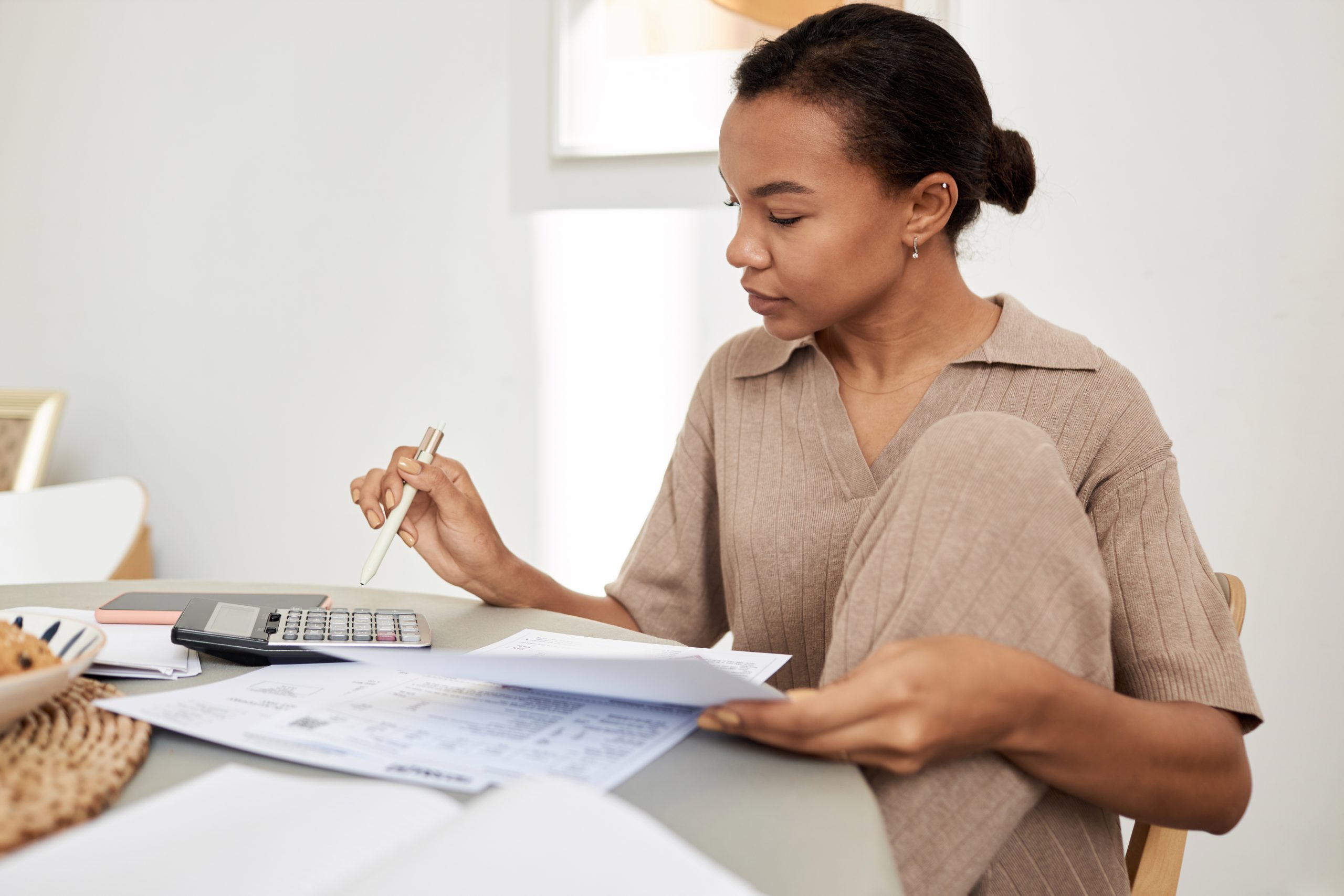6 ways to make better use of your tax refund
To spend or not to spend—that is the question; at least when it comes to your tax refund.
Last year, the Canada Revenue Agency issued 17 million refunds, amounting to a total of almost $37 billion to Canadians. That’s roughly $2,176 on average that was paid out per person in refunds.
Think of what you could do with that money. No, seriously. We want you to really think about it.
Whether it’s $2,000 or $20, every dollar you get back is a dollar you can then put towards the bigger financial picture (or your ‘financial goals’, as we like to call it). So go ahead and close those shopping apps—and say “thanks, but no thanks” to takeout foods and your favourite coffee-to-go.
That’s because we’ve brewed up 6 ways to make much better use of your tax refund.
#1: Pay down debt.
This should be a top priority—especially if your debt spans multiple cards and loans. Yet choosing to pay down debt may mean you end up with little to nothing left for any unexpected expenses that could pop up in the near future.
If you’re at the start of your education career (and lower on the pay grid), saving your tax refund might actually sound like a pretty good idea. After all, it means having a little bit of extra money in the bank… and that might seem more responsible than spending it.
However, in this case that simply isn’t the best financial strategy. The longer you carry a balance on your debt load, the more you’ll be paying in interest over time.
All that to say, if it’s a choice between saving your tax refund and paying down debt—choose debt repayment.
To maximize the impact of your return, start with loans and credit cards that carry the highest interest rates, then work your way down. If you’re looking to be mortgage-free sooner, consider using your tax refund to make an extra mortgage payment instead (as long as you have pre-payment privileges as part of your mortgage term).
It’s also important that you start building up an emergency fund (discussed below in point #4) so that you can avoid adding future debt.
#2: Invest in yourself.
Instant gratification is one of the top reasons people are tempted to spend their tax refund. But if you’re willing to stay focused on the bigger financial picture, you’ll easily be able to switch from choosing instant (or short-term) gratification, in favour of genuine fulfillment in the long term.
So instead of ‘paying yourself’ now, use your tax refund to invest in your goals for down the road.
If a deferred salary leave, summer getaway, or home renovation is on your wish list, consider investing your refund to take advantage of compound growth.
For those that prefer to err on the side of caution when it comes to investing, a Guaranteed Investment Certificate (GIC) is a simple and safe choice. With a GIC, you’re guaranteed to receive a set interest rate based on the term you choose. Better yet, the GIC can be held inside a Tax-Free Savings Account (TFSA), which means no taxation on your earnings. Keep in mind that you cannot access the money in a GIC until the maturity date, and TFSA contribution limits apply.
#3: Invest in your child’s post-secondary education.
The federal government expects tuition fees to increase at a rate of 2.5% above the rate of inflation annually over the next 20 years. If you had a baby recently, congratulations! Oh, and you better start saving.
Putting your tax refund towards a Registered Education Savings Plan (RESP) can help you get a jump on saving for that post-secondary education.
Plus, with the Canada Education Savings Grant (CESG), the government will kick in an additional 20% of your RESP investment. That’s $500 annually, up to a lifetime maximum of $7,200 per child.
#4: Start an emergency fund.
As much as we like to make plans in life, there will always be times when the unexpected swoops in and gets you where it hurts—your finances.
Using your tax refund to kick-start/build up an emergency fund will ensure you’re better prepared to cover these unexpected costs.
Typically it’s recommended to have 3 to 6 months of necessary living expenses saved in an emergency fund. However, out of the 68% of Canadians that have an emergency fund in place, less than half actually had enough money saved to cover the full cost of their ‘unexpected emergencies’.
While your tax refund is a good starting point, you will need to make regular contributions to build up your emergency fund.
Setting up pre-authorized contributions is one of the easiest ways to do this. The money automatically comes out of your account at regular intervals (such as bi-weekly, or monthly). One of the biggest advantages of doing this is that it builds emergency fund contributions into your budget, instead of making it a large, one-time expense.
#5: Build up your down payment for a home.
If home ownership is part of your future plans, consider depositing your tax refund into a ‘down payment fund’.
The new Tax-Free First Home Savings Account (FHSA) and the Registered Retirement Savings Plan (RRSP)* are both great options.
Among the benefits, you’ll enjoy a tax break in both accounts. Plus, any withdrawals from an FHSA are not taxed, like a TFSA, as long as the money is used towards the cost of your first home.
#6: Add a financial cushion to your pension income in retirement.
With OTPP/OMERS, you have a great pension plan in place. However, it never hurts to put a little extra away—especially if your plans for retirement include plenty of travel (one of the top activities of retired education members).
Putting your tax refund towards a Registered Retirement Savings Plan (RRSP) is the perfect way to ensure financial peace of mind during your ‘after school years’.
Need help putting your tax refund to better use?
Since 1975, Educators Financial Group has been exclusively helping education members make the most of their finances beyond their tax refund. No matter where you are on the pay grid, or what your pension income is in retirement—call on us for a unique perspective when it comes to sound financial advice.
Speak to a financial advisor today
Sources:
* Your RRSP contributions must stay in the RRSP for at least 90 days before you can withdraw them under the Home Buyers' Plan, otherwise the contributions may not be deductible for any year.
https://www.canada.ca/en/revenue-agency/corporate/about-canada-revenue-agency-cra/individual-income-tax-return-statistics.html
https://www.advisor.ca/tax/tax-news/canadians-receiving-an-average-of-2053-in-tax-refunds-cra-says/
https://www.canada.ca/en/revenue-agency/news/newsroom/tax-tips/tax-tips-2021/need-to-know-2021-tax-filing-season.html
Brokerage license 12185


